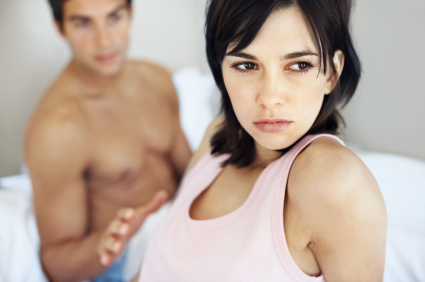 What is Herpes?
What is Herpes?
Herpes simplex is a virus that is responsible for cold sores and genital herpes. There are two types of Herpes simplex viruses: type 1 (HSV-1) is most often responsible for cold sores (also referred to as fever blisters) while type 2 (HSV-2) is responsible for nearly 90% of cases of genital herpes (the remaining 10% are caused by HSV-1).
In some people (mostly children) an initial HSV-1 infection may cause: fever; painful swelling and open sores on the gums and inside the cheeks; or a painful, sore throat. When these herpes symptoms do develop, they usually begin 2 to 12 days after exposure to someone with HSV-1.
Symptoms of a first episode of genital herpes usually appear within two to 10 days of exposure to the virus and last an average of two to three weeks. Early symptoms can include an itching or burning sensation; pain in the legs, buttocks, or genital area; vaginal discharge; or a feeling of pressure in the abdominal region. Within a few days, sores (lesions) appear at the site of infection. Lesions also can occur on the cervix in women or in the urinary passage in men. These small red bumps may develop into blisters or painful open sores. Over a period of days, the sores become crusted and then heal without scarring. Other symptoms that may accompany a primary episode of genital herpes can include fever, headache, muscle aches, painful or difficult urination, vaginal discharge, and swollen glands in the groin area.
After the initial infection in the skin or mucous membranes, the virus travels to the sensory nerves at the end of the spinal cord and makes a home. In most people, the virus becomes dormant (inactive). In others, however, it can be reactivated. When the virus becomes reactivated it travels along the nerves to the skin, where it multiplies on the surface at or near the site of the original herpes sores, causing new sores to erupt. It also can reactivate without causing any visible sores.
What causes Herpes?
Herpes is caused by an infection with the herpes simplex virus.
What dietary factors are important in Herpes?
A diet high in the amino acid lysine and low in arginine can be an effective measure in preventing HSV infections especially if used in conjunction with lysine supplementation. This dietary approach arose from research showing that lysine has antiviral activity in test tube studies due to blocking arginine. HSV replication requires the manufacture of proteins rich in arginine, and arginine itself is suggested to be a stimulator of HSV replication. From a theoretical perspective, this approach should be effective, since in vitro studies have shown that HSV replication is dependent on adequate levels of arginine and low levels of lysine. Foods high in arginine are chocolate, peanuts, seeds, and almonds and other nuts. Foods high in lysine include most vegetables, legumes, fish, turkey, and chicken.
What nutritional supplements should I take for Herpes?
Foundation Supplements. High potency multiple vitamin and mineral formula; Vitamin D3 2,000-5,000 IU/day; Fish oil, EPA+DHA 1,000 to 3,000 mg/day.
Lysine supplementation along with avoidance of arginine-rich foods can be effective in preventing herpes outbreaks according to some double-blind studies. In order to be effective the necessary dosage appears to be 1,000 mg three times daily.
Anti-V from Natural Factors contains the following concentrated extracts:
- Echinamide – a patented, clinically proven, super-extracted Echinacea purpurea liquid that guarantees high levels of the three key active groups of compounds responsible for echinacea’s actions on the immune system.
- Astragalus (Astragalus membranaceus) – the most famous herb in Chinese medicine for strengthening the immune system that is now backed by scientific evidence.
- Lomatium (Lomatium dissectum) – this herb garnered attention during the Spanish influenza in 1917, after it was discovered that Native Americans were recovering from this flu much quicker than everyone else.
- Reishi (Ganoderma lucidum) – referred to in Chinese medical texts as ‘the mushroom of immortality,’ reishi is valued by modern herbalist for its ability to promote resistance during times of stress.
- Licorice (Glycyrrhiza glabra) – a valued, time-tested herb noted in recent scientific investigations for its anti-viral properties.
The dosage recommendation for immune support during acute viral infections is to take 50 drops in water or two capsules every two to three hours. For long-term support or prevention the recommendation dosage is to take 50 drops or one two capsules two times a day or as directed by your health practitioner.
How do I know if the recommendations are working?
Less frequent and severe outbreaks are a clear indication that the program is working.


